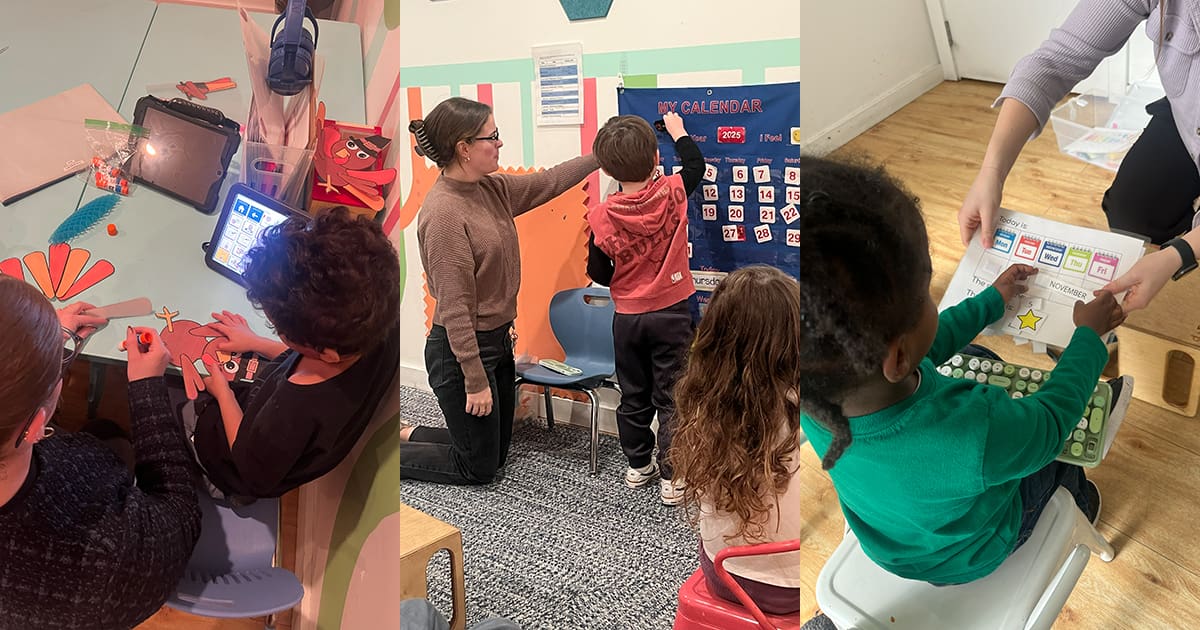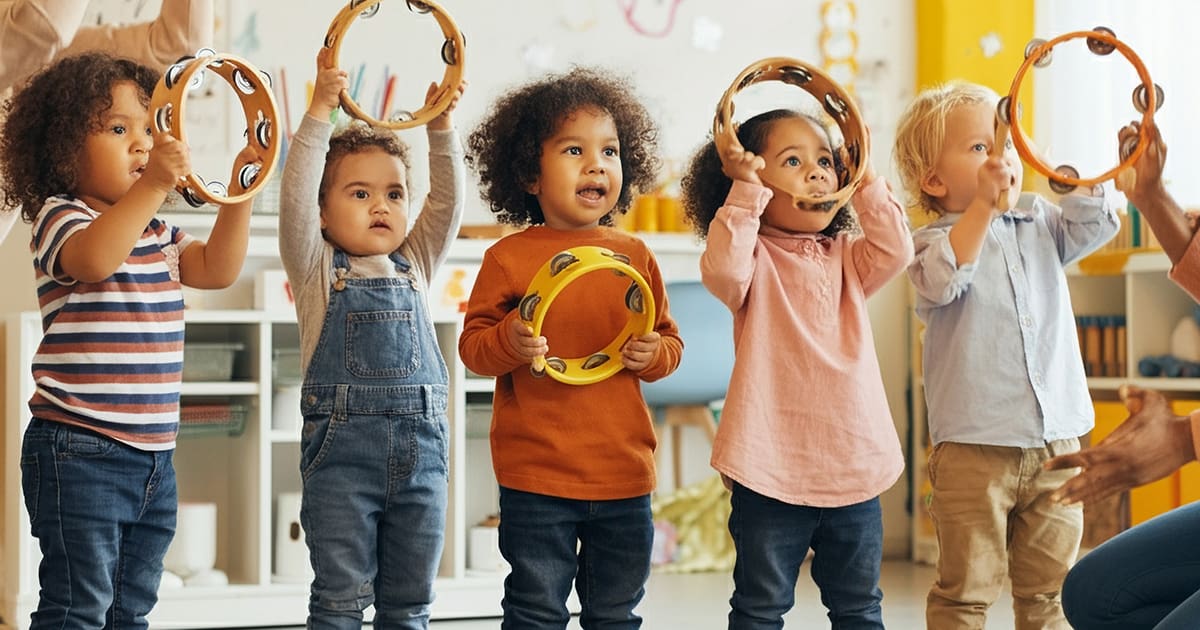Share this Post

Every child deserves a nurturing and supportive learning environment that meets their unique needs. For many families, choosing between a therapeutic preschool program and a traditional preschool can feel overwhelming. While both settings focus on early childhood development, therapeutic programs offer specialized support for children who need extra help with speech, motor skills, sensory processing, and social-emotional development.
At CST Academy, we understand that each child learns differently, and our goal is to provide a comprehensive, individualized approach that fosters confidence, independence, and school readiness. This guide explores the key differences between therapeutic programs and standard preschools, helping parents make an informed decision about what is best for their child.
What is a Standard Preschool?
A traditional preschool is designed to provide young children with a foundation for learning before they enter kindergarten. These programs focus on early academics, socialization, and structured play to help children develop cognitive and social skills.
Key Features of a Traditional Preschool
- Basic academic instruction in early literacy, math, and problem-solving
- Large-group learning with structured lesson plans and classroom routines
- Opportunities for socialization through play and group activities
- General classroom support provided by early childhood educators
- Limited access to individualized interventions or therapy services
For many children, a standard preschool setting provides valuable exposure to learning and social interactions. However, for children who need specialized support, a therapeutic program offers a more structured and individualized approach.
What is a Therapeutic Preschool Program?
A therapeutic preschool program combines early childhood education with integrated therapy services to help children who may need extra support in speech, motor skills, sensory regulation, or social-emotional development. These programs are specifically designed to bridge developmental gaps and prepare children for future learning success.
Key Features of a Therapeutic Preschool
- Individualized learning plans tailored to each child’s strengths and challenges
- Integrated therapy services, including speech therapy, occupational therapy, and behavioral support
- Smaller class sizes for personalized instruction and attention
- Multidisciplinary team approach, with therapists and educators working together
- Structured routines that support sensory needs, behavior management, and academic learning
By combining education with therapeutic interventions, a therapeutic preschool ensures that children receive specialized support in a developmentally appropriate environment.
Key Differences Between Therapeutic Preschools and Standard Preschools
1. Individualized vs. Generalized Learning Approaches
Traditional Preschool:
- Follows a one-size-fits-all curriculum designed for general early learning.
- Provides group-based instruction, with limited one-on-one attention.
- Teachers follow set lesson plans with a focus on academic preparation.
Therapeutic Preschool:
- Adapts learning strategies to each child’s individual needs.
- Uses small-group and one-on-one instruction to reinforce skills.
- Integrates therapy goals into the curriculum, supporting both learning and development.
Therapeutic programs prioritize skill-building in areas like communication, motor development, and self-regulation, ensuring that children receive the right level of support for their unique needs.
2. Level of Therapy and Support Services
Traditional Preschool:
- May offer general classroom accommodations but does not include therapy services.
- Teachers may refer families to outside therapy services if additional support is needed.
Therapeutic Preschool:
- Provides on-site therapy services, including:
- Speech therapy for communication delays.
- Occupational therapy for fine and gross motor skills.
- Behavioral support for social-emotional development.
- Therapists work closely with teachers to reinforce strategies throughout the day.
This integrated approach ensures that therapy is not limited to scheduled sessions but is woven into daily classroom activities, reinforcing skills in real-time.
3. Class Size and Student-to-Teacher Ratio
Traditional Preschool:
- Larger class sizes with one lead teacher and an assistant.
- Limited one-on-one time for students needing extra help.
Therapeutic Preschool:
- Smaller class sizes with more individualized attention.
- Higher staff-to-student ratio, allowing for increased support.
- Therapists, teachers, and support staff work together to monitor progress.
Smaller class sizes in therapeutic programs create a calmer, more structured environment, which is beneficial for children with sensory sensitivities, anxiety, or social challenges.
4. Social and Emotional Development
Traditional Preschool:
- Focuses on peer interaction and early social skills.
- Children are expected to adapt to group learning environments without specialized interventions.
Therapeutic Preschool:
- Uses structured social skill-building activities to help children engage with peers.
- Provides guided social interactions with therapist support.
- Helps children develop self-regulation strategies, improving emotional awareness and coping skills.
This structured approach ensures that children who need extra help with socialization and emotional regulation receive the tools they need to build friendships and succeed in group settings.
5. Readiness for Kindergarten and Beyond
Traditional Preschool:
- Focuses on preparing children for kindergarten academics.
- Assumes that children will naturally develop the social and self-regulation skills needed for a classroom setting.
Therapeutic Preschool:
- Prepares children for both academic and developmental success.
- Builds foundational skills in communication, self-care, and behavior management.
- Ensures that children transition into kindergarten with confidence by addressing challenges early.
By focusing on school readiness from a therapeutic perspective, children gain independence and essential life skills that help them succeed in future educational environments.
Which Preschool Option is Right for Your Child?
Choosing between a traditional preschool and a therapeutic preschool depends on your child’s individual needs.
A therapeutic preschool may be the best fit if your child:
- Has speech or language delays.
- Needs help with fine or gross motor skills.
- Has sensory sensitivities or sensory-seeking behaviors.
- Struggles with social interactions or emotional regulation.
- Needs more individualized support and structure to prepare for kindergarten.
If your child thrives in a general early learning environment and does not require extra support, a traditional preschool may be a good fit. However, for children who need additional therapeutic intervention, a therapeutic preschool provides the structure and resources necessary for long-term success.
How CST Academy’s Therapeutic Preschool Supports Your Child
At CST Academy, we provide:
- Integrated therapy services, including speech, occupational, and behavioral support.
- Small class sizes and personalized learning plans.
- A sensory-friendly, structured environment that supports all learners.
- A multidisciplinary team of therapists and educators working together to ensure progress.
Our comprehensive approach ensures that children receive both the academic foundation and developmental support needed to transition into kindergarten with confidence.
If you are considering a therapeutic preschool program, contact CST Academy today to learn more about how we can support your child’s growth and success.
Discover Our Pediatric Therapy & Autism Care
ABA Therapy
Support for children with autism.
Autism Evaluation
Expert assessments to identify child needs.
Pediatric Therapy Services
Speech, Occupational, Feeding, and Physical Therapy.
Therapeutic Preschool
A classroom environment designed for early learners with unique needs.

Find the Best Care for Your Child




